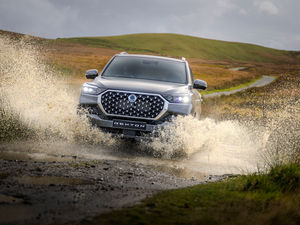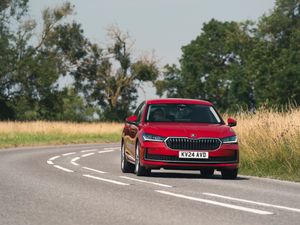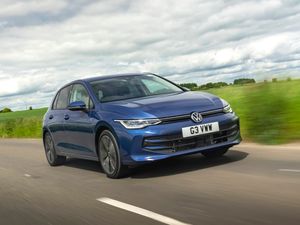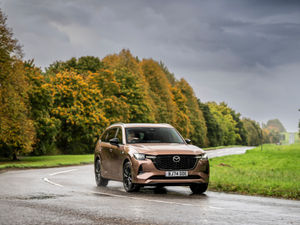First Drive: The BMW iX2 is a bold entrant to the electric SUV market
BMW’s new X2 is quite a radical departure from its predecessor. Ted Welford tries it out in Lisbon.
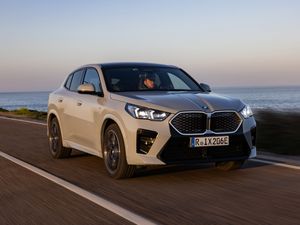
What is it?
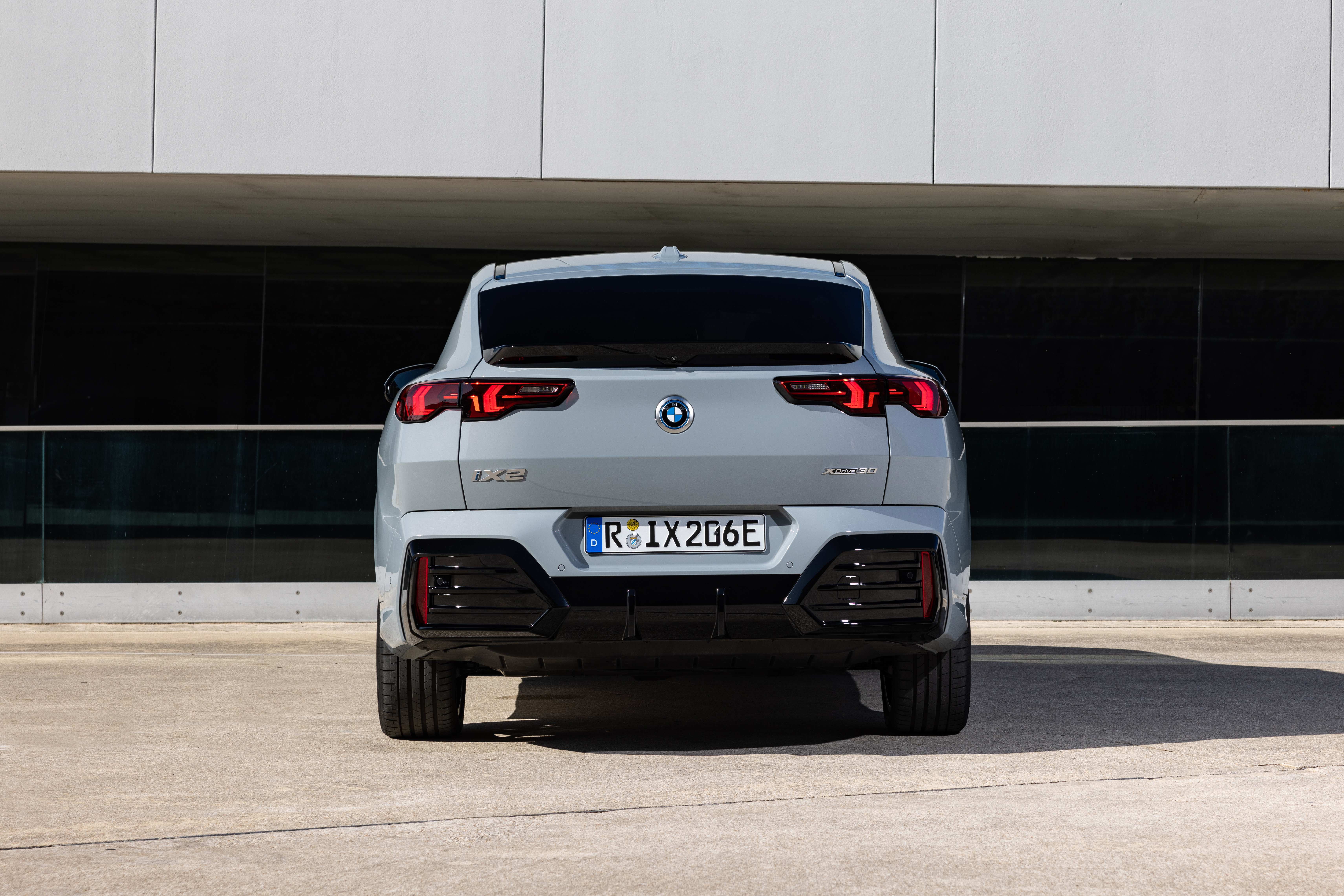
>
The X2 has always been an oddball choice in BMW’s extensive line-up of SUVs. Its ‘X’ models with even numbers typically signify a coupe-SUV, but the X2 was never that – rather a slightly raised hatchback that didn’t exactly scream ‘SUV’ nor come with the practicality to go with it.
Despite that, as one of BMW’s smallest SUVs, it didn’t stop buyers with almost 400,000 sold since its introduction in 2018. But a lot has changed then, so the German carmaker is back with a new model, bringing an electric version for the first time along with various other major leaps forward. Let’s find out what it’s like.
What’s new?
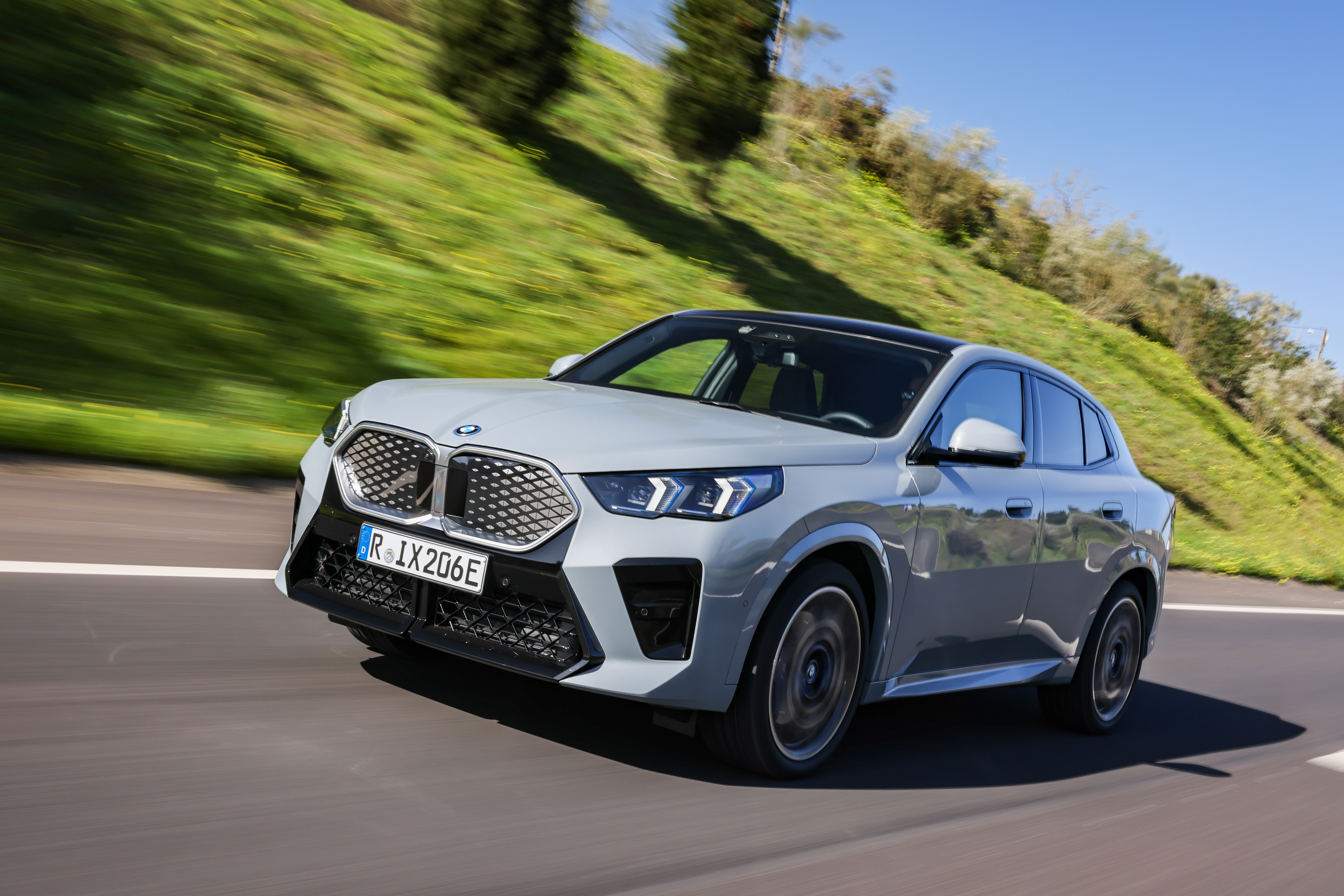
>
Compare the old and the new X2 and very little is shared in common. This is a completely new SUV, sharing underpinnings with the latest X1, and is significantly larger as a result; being 20cm longer than the old car and having a much bigger boot than its predecessor.
BMW has also thrown all of its latest technology at the X2, as it uses the now-familiar Curved Display interior, along with all manner of tech upgrades. There’ll even be a ‘hands-off’ driving feature available on it in the UK, as and when our legislation permits it.
What’s under the bonnet?
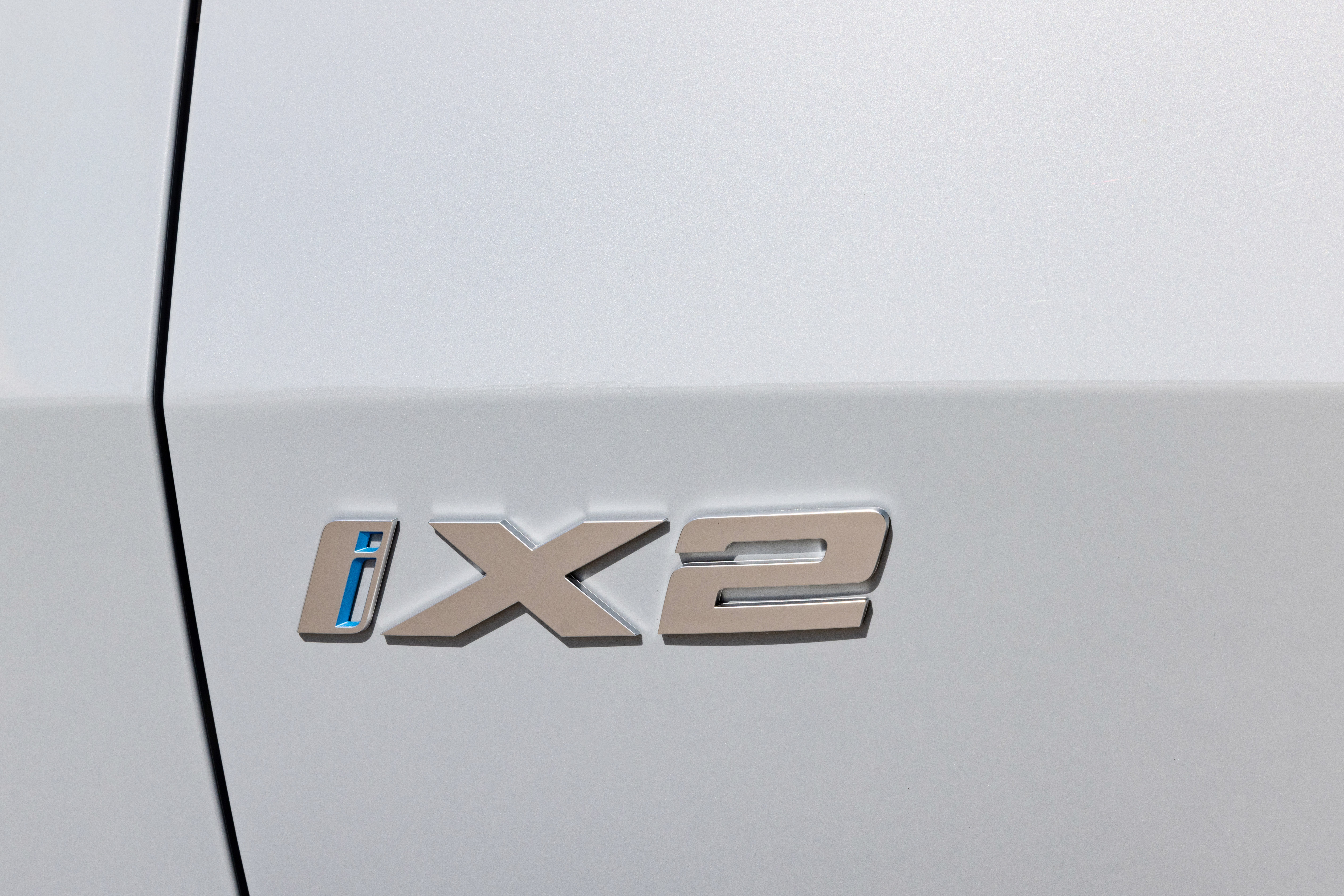
>
BMW is significantly scaling up its line-up of EVs, with more than a quarter of its cars sold in the UK last year being electric. Though two petrol models will also be available, BMW claims the majority of X2s sold in Britain will be of the electric variety.
There are two electric iX2 models available, an entry-level front-wheel-drive eDrive20 and the four-wheel-drive xDrive30 model we’re trying here, which gets a second electric motor, producing 309bhp and 494Nm of torque compared to 201bhp and 250Nm with the standard car. Accelerating from 0-60mph in this top-spec model takes 5.4 seconds, with the top speed capped at 112mph.
Both versions use the same 64.8kWh battery, allowing for a claimed range of up to 267 miles with the more powerful model, and up to 297 miles with the standard car.
What’s it like to drive?
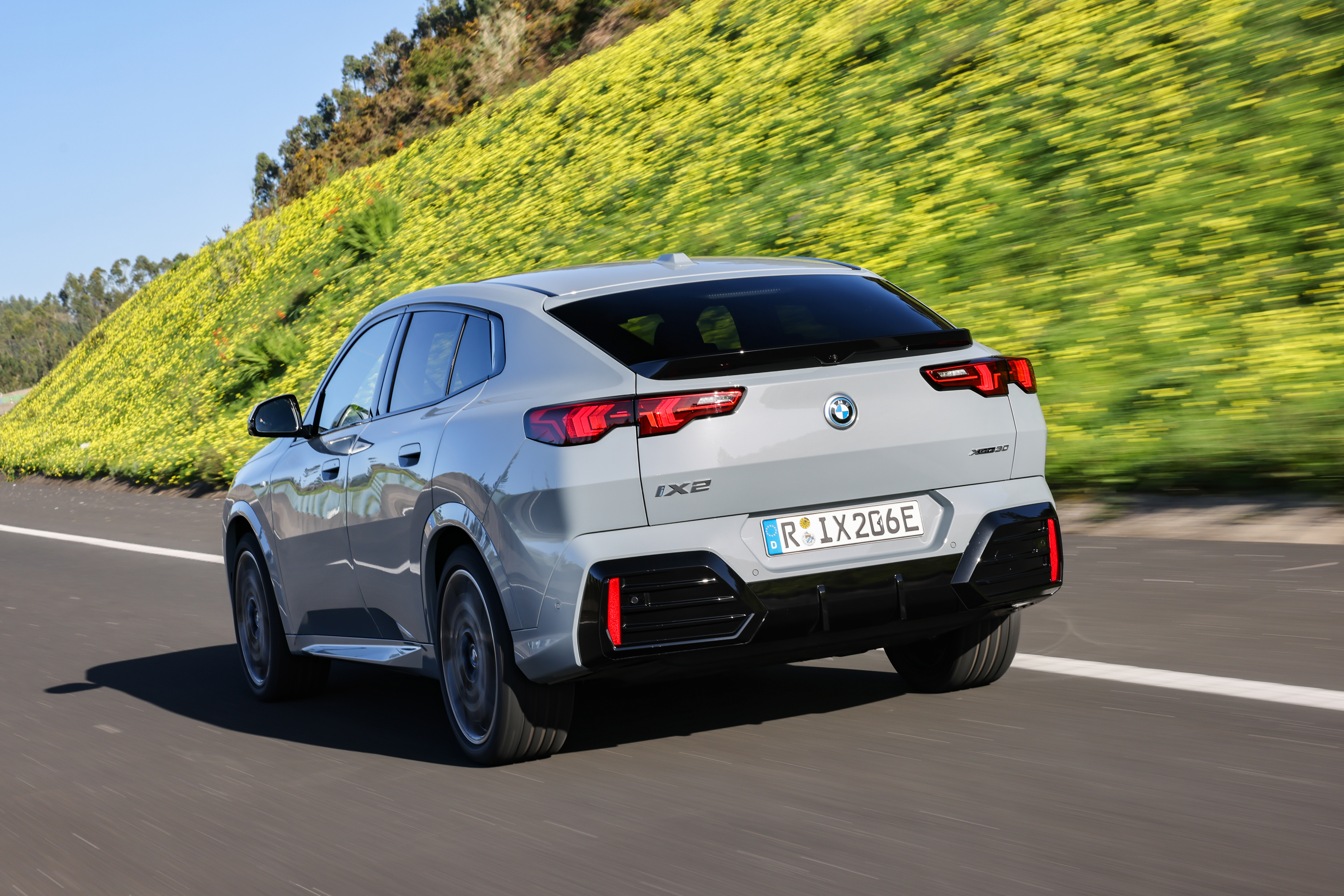
>
Though refinement is a typical EV trait, the iX2 shines especially in this area, with a hushed driving experience, even at higher speeds on the motorway. While electric cars are typically silent, you can have what BMW calls ‘IconicSounds’ turned on, giving the iX2 a futuristic sound to amplify the experience.
We have slight reservations about the iX2’s ride quality – not least with our test car sitting on the larger 20-inch wheels – as it could feel a bit unsettled, but the proof will be with a first test in the UK. Aside from that, though, this BMW is an enjoyable steer by electric SUV standards, with a very linear – and brisk – response from the electric motors, allowing you to push on more than you would feel comfortable in its rivals.
Though the iX2 is equipped with 130kW DC rapid charging capability – allowing a 10 to 80 per cent top-up to take place in around half an hour – the range, especially for an SUV of this size and price, isn’t great. Audi’s Q4 e-tron Sportback can travel around 50 miles further from a charge, for example.
How does it look?
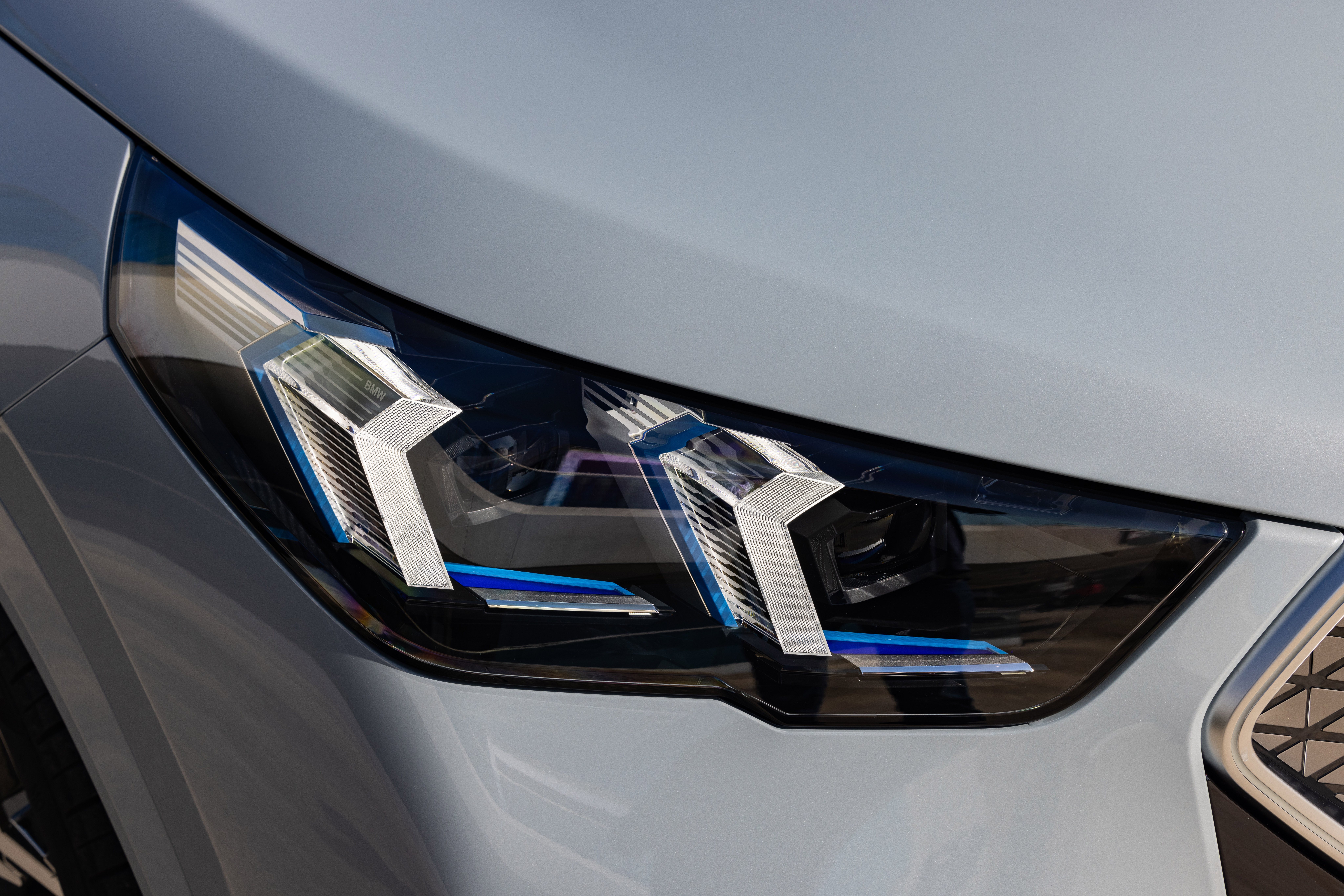
>
BMW has certainly addressed the previous X2’s lack of coherency with its other coupe-SUVs and now boasts a much sleeker sloped rear end that brings it far more in line with the firm’s X4 and X6. Though a car’s styling will always be down to personal taste, we find the rear end of the new X2 quite odd, with its strange-looking lights doing it no favours.
It doesn’t scream ‘electric car’ at you like many other cars in its class do, though, which will appeal to those not wanting to shout about the switch to EVs. Only a blanked-off grille with its own unique pattern helps to tell it apart from petrol versions.
What’s it like inside?
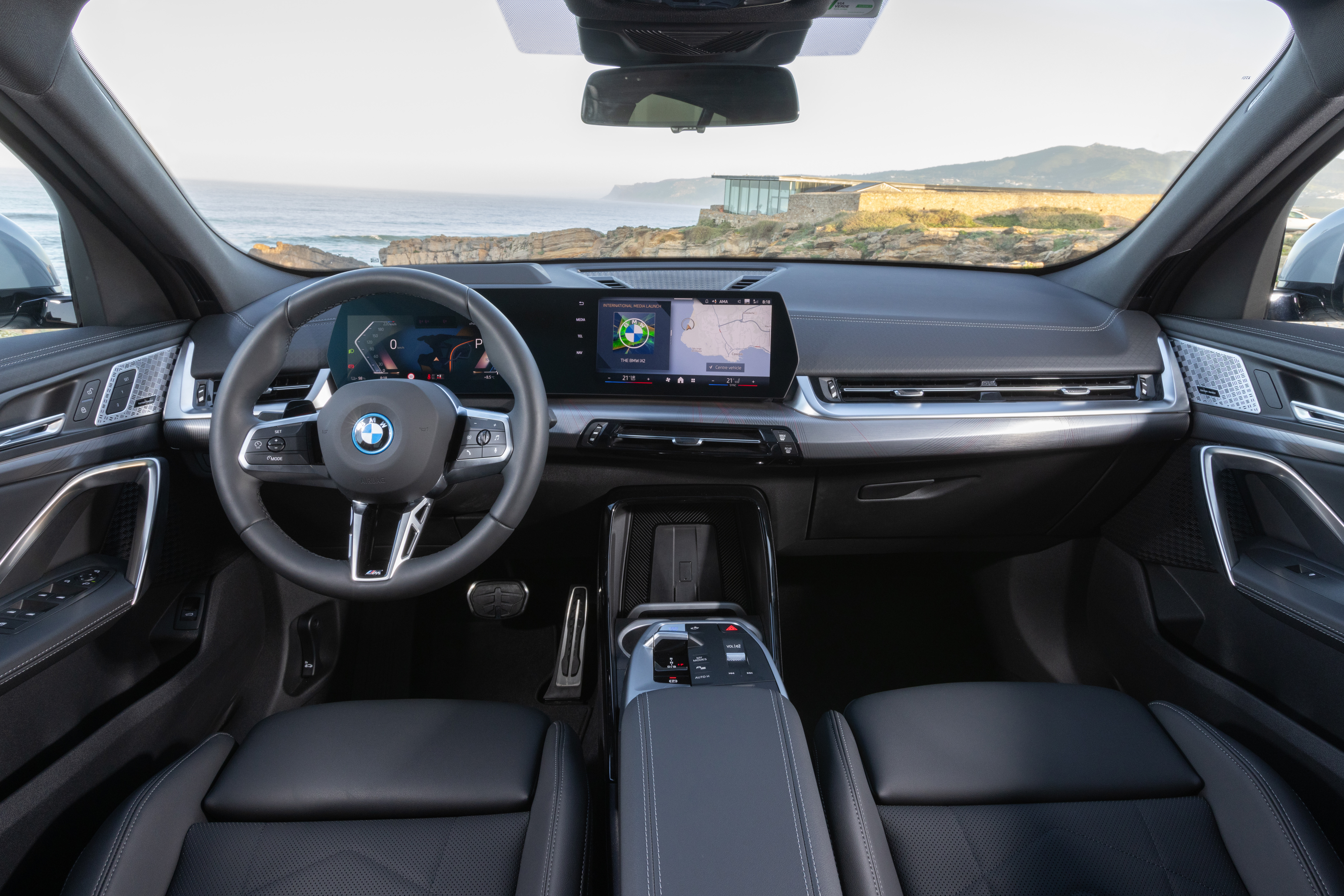
>
If you’re familiar with modern BMW interiors, little about the iX2’s interior will come as a surprise. The iDrive controller is no more and in place are two large digital displays that BMW calls a ‘Curved Display’. Our test car had a few glitches but these will likely be ironed out as the screens usually work flawlessly in BMW’s other models, albeit the lack of physical controls – and the daunting amount of functions integrated – takes time to get your head around.
But the main change with the new X2 is perhaps just how much bigger it is than its predecessor. For a car to grow in size by 20cm in a generation is quite significant, and while it previously felt a bit compromised as a family car, there’s no problem here. Even with the sloping roofline, adults will be about to get comfortable, though be mindful of the optional panoramic sunroof eating into available headroom.
At 525 litres, the iX2’s boot is a great size as well, with dedicated space beneath the load floor to keep cables.
What’s the spec like?
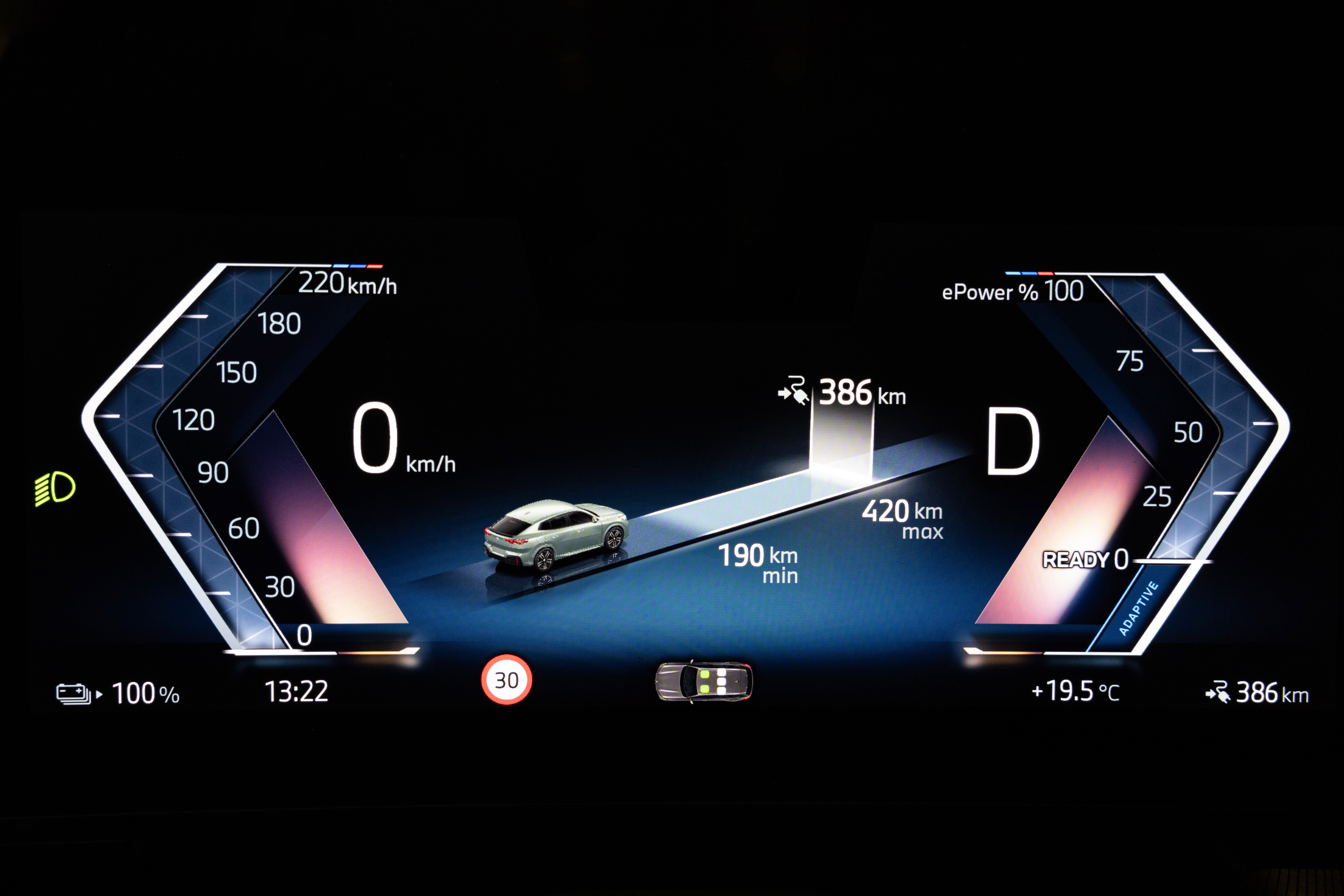
>
Regardless of petrol or electric power, all X2s in the UK come purely in M Sport trim, which means you get a fairly comprehensive range of equipment as standard. There’s the aforementioned Curved Display, along with heated front seats and an electric boot.
Prices for the iX2 are fairly steep, as the standard electric model will set you back £51,615, and the more powerful EV comes in at £57,445 – around £8,000 more than the petrol M35i model with similar power and performance. It’s a lot of money for what is technically one of BMW’s smallest SUVs and is nearly encroaching on cars from the class above, such as the firm’s own iX3, which costs from £65,000.
Verdict
BMW leads the way when it comes to premium electric cars – at least against its core competitors Audi and Mercedes – and the iX2 is another fine addition to its expansive EV line-up.
The X2 in general is a far more accomplished car than its predecessor, with its coupe styling no doubt appealing to buyers in this increasingly popular space. But though the X2 is a far more substantial car than its predecessor, the price has jumped substantially as well, making it a little harder to recommend than it should be.


